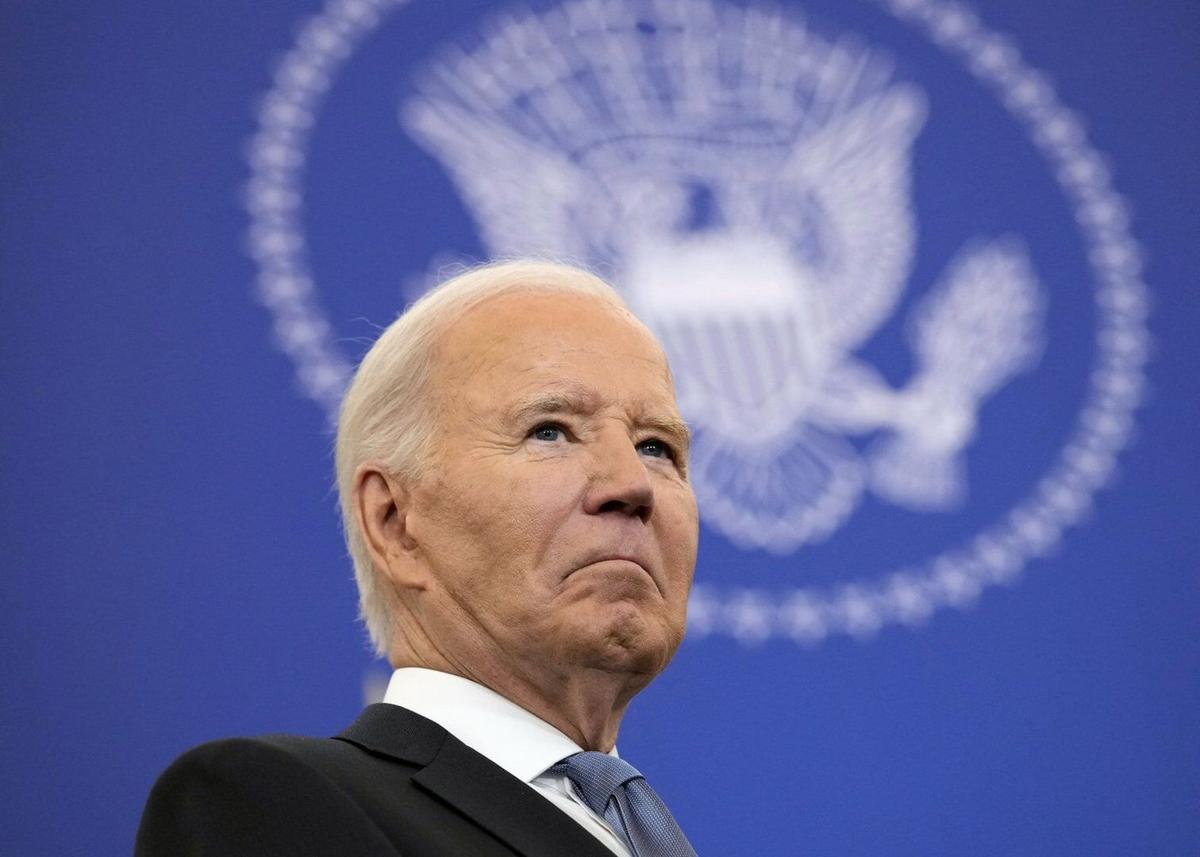
Former President Joe Biden’s office has officially confirmed that his “last known” prostate cancer screening took place in 2014 and that prior to last week, he had never been diagnosed with the disease.
This revelation came amid heightened public attention and intense scrutiny surrounding Biden’s health as news broke about his prostate cancer diagnosis.
The details were released in a brief statement on Tuesday, aiming to clarify timelines and counter speculation about the progression and detection of his cancer during his presidency.
The announcement has fueled ongoing discussions about how prostate cancer can develop and progress, especially in older adults, and raised questions about the challenges of detecting serious illnesses in public figures.
While Biden’s cancer is reportedly controllable with treatment, his aides confirmed that it has spread to his bones, marking it as an advanced and currently incurable stage of the disease.
The statement from Biden’s office did not include specific results from his 2014 prostate-specific antigen (PSA) blood test, a common screening method used to identify prostate cancer risk.
Instead, the full statement read, “President Biden’s last known PSA was in 2014. Prior to Friday, President Biden had never been diagnosed with prostate cancer.”

This concise communication was intended to directly address and dispel rumors that the former president’s cancer might have been known but concealed from the public during his time in office.
News of Biden’s diagnosis was made public on Sunday, prompting an outpouring of sympathy from supporters and the general public alike. However, the revelation also sparked skepticism and criticism from some of his political opponents.
Among those raising questions was Donald Trump, Biden’s immediate successor as president. Trump suggested that the severity of Biden’s cancer should have been made known to the public sooner given the advanced stage of the disease at the time of its announcement.
During a White House appearance, Trump commented on Biden’s health situation, saying, “It takes a long time to get to that situation.”
He added, “I was surprised that the public wasn’t notified a long time ago,” reflecting his surprise that such a serious health condition had not been disclosed earlier.
Despite these comments, Trump expressed sympathy, calling the situation “very sad” and stating that he “feels very badly about it.”
The controversy over Biden’s cancer diagnosis comes at a time when public figures’ health is often subject to intense media scrutiny and political debate.
Biden’s White House physician had released health summaries during his presidency, but notably, the PSA test results were not included in these reports.

This omission contributed to uncertainty about when Biden’s prostate cancer might have first emerged or been suspected by his medical team.
Prostate cancer screening through PSA blood tests is a topic of considerable medical debate. While these tests can help detect prostate cancer early, they also have drawbacks.
Screening can sometimes lead to unnecessary treatments that cause side effects such as urinary problems, erectile dysfunction, and other complications that significantly impact quality of life.
As a result, medical guidelines generally recommend against routine prostate cancer screening for men aged 70 and older unless specific risk factors exist.
Given that Biden is 82 years old, this guideline may have influenced decisions about his screening schedule.
When detected early, prostate cancer is known for its high survival rates. It is among the most treatable cancers if caught in initial stages. However, it remains the second-leading cause of cancer death among men in the United States.
According to the American Cancer Society, about one in eight men will receive a prostate cancer diagnosis during their lifetime, underscoring how common the disease is.
The progression of prostate cancer varies widely. Some men have slow-growing tumors that may never cause serious problems, while others develop aggressive forms that spread quickly, often first to bones.

In Biden’s case, his aides confirmed that the cancer had metastasized to his bones, which is generally considered a sign of advanced disease that becomes much more difficult to cure.
Treatments may focus on controlling symptoms and slowing progression rather than achieving a complete cure.
Biden’s diagnosis has renewed public discussions about transparency surrounding the health of political leaders. Many believe voters have a right to know about serious health conditions that could affect a president’s ability to serve.
Others argue that medical privacy should be respected, especially when it comes to illnesses that may be manageable or slow progressing.
The Biden cancer news also highlights broader issues facing older adults diagnosed with cancer. The risk of many cancers, including prostate cancer, increases with age.
Managing cancer in elderly patients often requires balancing treatment effectiveness with maintaining quality of life, especially when treatments carry risks of severe side effects.
The timing of Biden’s last PSA screening in 2014, eight years before the cancer announcement, raises questions about how frequently high-risk individuals should be monitored.
Experts recommend individualized screening plans that take into account factors such as age, family history, overall health, and personal preferences.

In political contexts, health disclosures often become contentious, with opponents sometimes using medical information to question fitness for office or to score political points.
Biden’s office carefully framed their statement to focus on facts, seeking to put speculation to rest while maintaining respect for the former president’s privacy.
As the public processes these new details, attention turns to how Biden will manage his health moving forward. His medical team will likely consider treatments that can control the disease’s spread, relieve pain from bone involvement, and preserve function and well-being.
In summary, Biden’s office confirmed that his last known prostate cancer screening was conducted in 2014 and that he had no prior diagnosis before last week’s announcement.
The cancer has since been identified as having spread to his bones, making it incurable but potentially manageable with treatment.
The disclosure has led to mixed reactions, ranging from sympathy to skepticism, and has reignited conversations about cancer screening practices, transparency in political leadership, and health care for older adults facing serious illnesses.
Ultimately, Biden’s case serves as a reminder of the complexities involved in cancer detection and management, particularly in elderly patients, and highlights the delicate balance between public interest and individual privacy in the lives of public figures.

It also underscores the ongoing importance of research, early detection, and advances in cancer treatment to improve outcomes for millions of men worldwide affected by prostate cancer every year.



